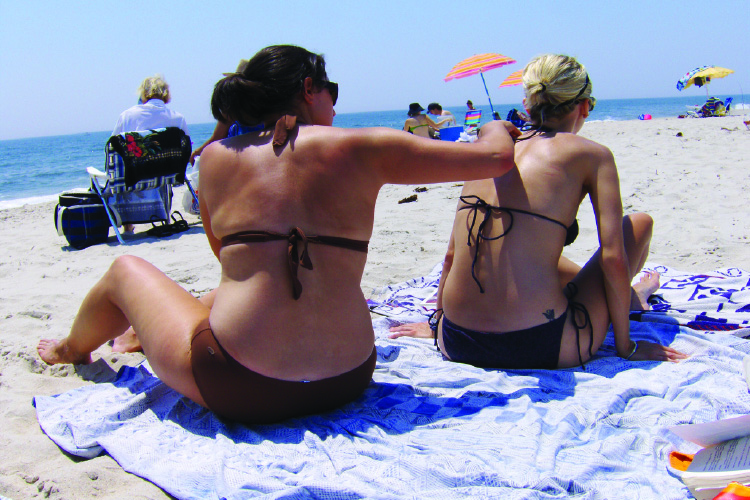Trying to make sense of sun protection factors, UVA and UVB blocks, waterproof versus regular, and so on can leave your head spinning. But if you take a few minutes to sort out the facts about sunscreens now, you’ll be able to pick a product that will do the best job of protecting your skin from the sun’s powerful rays – along with reducing the potential for deadly skin cancers.
Table of Contents
What Are Sunscreens?
Sunscreens are chemical agents that help prevent the sun’s ultraviolet (UV) radiation from reaching the skin. Two types of ultraviolet radiation, UVA and UVB, damage the skin and increase your risk of skin cancer. UVB is the chief culprit behind sunburn, while UVA rays, which penetrate the skin more deeply, are associated with wrinkling, leathering, sagging, and other effects of photoageing (refers to the damage that is done to the skin from prolonged exposure, over a person’s lifetime, to UV radiation). They also exacerbate the carcinogenic effects of UVB rays, and increasingly are being seen as a cause of skin cancer on their own. Sunscreens vary in their ability to protect against UVA and UVB.
Choosing the Right SPF in Sunscreen
SPF stands for Sun Protection Factor. The higher the SPF number, the better protection against the sun’s harmful UVB rays. The SPF number lets you know how much longer you can stay out of the sun without burning. For example, if it takes 15 minutes for a person to burn, an SPF 15 will allow them to stay out in the sun 15 times longer without burning.
The American Academy of Dermatology recommends wearing an SPF of 15 or higher for maximum protection. SPF is available in levels from 2 to 60. Does highest mean the best protection? Not necessarily. An SPF of 50 only provides 1% to 2% more protection than an SPF 30.
UVA and UVB Protection
The label of the sunscreen will indicate the UVA or UVB protection.
- UVA rays are responsible for the ageing effect of the sun; however, overexposure to UVA rays can cause skin cancer.
- UVB rays are responsible for sunburns and skin cancer.
Choose a product that has “UVA/UVB,” protection or “broad spectrum” protectant.
Waterproof vs. Water Resistant
If you are looking for a sunscreen to use while in the water, choose a sunscreen that is “waterproof” or “water resistant.”
“Waterproof” sunscreen should provide protection in the water for 80 minutes, while “water resistant” provides only 40 minutes of protection.
Source: U. S. Food and Drug Administration. Center for Food Safety and Applied Nutrition Office of Cosmetics and Colors
















